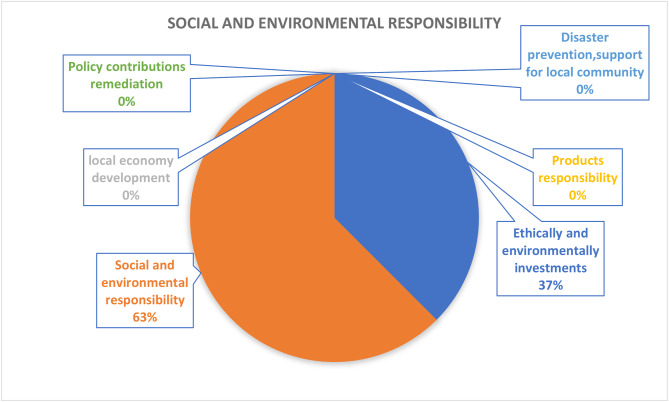Embracing Sustainability: Exploring Holistic Campus Sustainability Initiatives
Introduction:
Sustainability has become a critical focus in today’s world, and universities play a pivotal role in shaping future leaders and innovators with a deep understanding of environmental responsibility. Holistic Campus Sustainability Initiatives represent a comprehensive approach to integrating sustainability principles into every aspect of university life, encompassing not only environmental concerns but also social equity and economic viability. In this article, we delve into the significance of such initiatives, exploring their multifaceted impacts and the strategies universities employ to promote sustainability on campus.
Understanding Holistic Campus Sustainability Initiatives:
Holistic Campus Sustainability Initiatives go beyond merely implementing eco-friendly practices; they aim to create a culture of sustainability that permeates every facet of university operations, from academic programs to campus infrastructure and community engagement. These initiatives recognize the interconnectedness of environmental, social, and economic systems, emphasizing the importance of addressing sustainability in a comprehensive manner.
At the core of holistic sustainability initiatives is the commitment to environmental stewardship. Universities undertake efforts to reduce their carbon footprint by implementing energy-efficient technologies, promoting waste reduction and recycling, and integrating sustainable transportation options. These initiatives not only minimize environmental harm but also serve as educational tools, raising awareness among students, faculty, and staff about the importance of sustainable living practices.
However, holistic sustainability initiatives extend beyond environmental conservation to encompass social equity and economic resilience. Universities strive to create inclusive and diverse campus communities, fostering a sense of belonging among all individuals regardless of their background or identity. Additionally, they support local economies through procurement practices that prioritize local and sustainable goods and services, thereby contributing to the economic well-being of surrounding communities.
Key Components of Holistic Campus Sustainability Initiatives:
- Curriculum Integration: One of the fundamental aspects of holistic sustainability initiatives is the integration of sustainability principles into academic curricula across disciplines. Universities develop courses and programs that explore sustainability issues from various perspectives, equipping students with the knowledge and skills needed to address complex environmental challenges.
- Campus Operations: Sustainable campus operations involve implementing energy conservation measures, reducing water consumption, and minimizing waste generation. Universities may invest in renewable energy sources such as solar or wind power, adopt green building standards for new construction and renovation projects, and implement water-saving technologies to promote resource efficiency.
- Student Engagement: Engaging students in sustainability initiatives is crucial for fostering a culture of environmental responsibility on campus. Universities organize sustainability-themed events, workshops, and competitions to educate and empower students to take action. Student-led sustainability clubs and organizations play a vital role in driving positive change and advocating for sustainable practices within the university community.
- Research and Innovation: Universities serve as hubs of research and innovation, conducting groundbreaking research to address pressing sustainability challenges. Holistic sustainability initiatives support interdisciplinary research collaborations that explore innovative solutions to environmental problems, from renewable energy technologies to sustainable agriculture practices.
- Community Partnerships: Collaboration with local communities and external stakeholders is essential for advancing holistic sustainability initiatives. Universities engage in partnerships with government agencies, nonprofit organizations, and industry partners to leverage resources and expertise, driving collective action towards shared sustainability goals.
Case Studies of Successful Holistic Sustainability Initiatives:
- The University of California, Berkeley: UC Berkeley has been a leader in sustainability, with initiatives ranging from zero waste goals to carbon neutrality commitments. The university’s Sustainable Berkeley Lab engages students, faculty, and staff in research and action projects aimed at promoting sustainability across campus and beyond.
- Arizona State University: ASU’s Global Institute of Sustainability is dedicated to advancing research, education, and outreach initiatives that address environmental, social, and economic challenges. The university’s Sustainability Solutions Festival brings together stakeholders from diverse sectors to collaborate on innovative solutions to sustainability issues.
- The University of Copenhagen: As a pioneer in sustainable campus design, the University of Copenhagen has implemented green building standards and renewable energy technologies to minimize its environmental impact. The university’s Green Campus program promotes sustainable transportation options and encourages active commuting among students and staff.
Conclusion:
Holistic Campus Sustainability Initiatives represent a holistic approach to addressing environmental, social, and economic challenges within the university setting. By integrating sustainability principles into every aspect of campus life, universities can educate future generations of leaders and foster a culture of environmental responsibility and social equity. Through collaboration and innovation, universities can play a pivotal role in driving positive change towards a more sustainable and resilient future.
